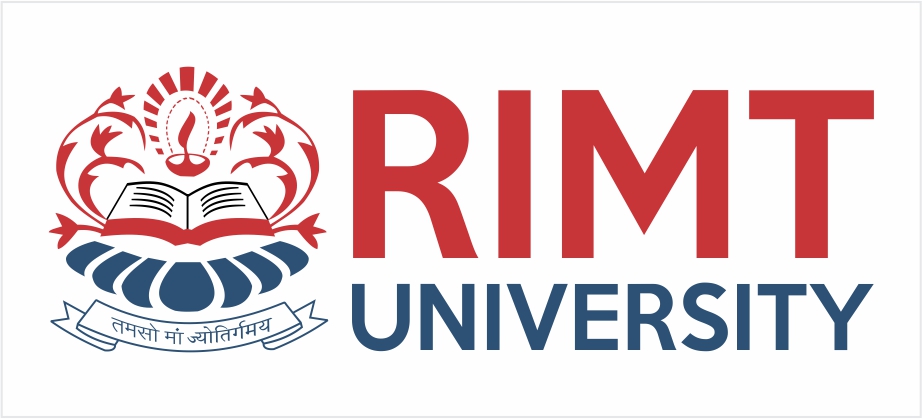About School
Agriculture dates back to the Neolithic period, approximately 7,000 to 10,000 years ago. While traditional farming methods from the 18th and 19th centuries still prevail in many regions across the globe, agricultural science and technology have undergone tremendous advancements over the years.
With the global food demand rising at an extraordinary rate, it’s no longer just about feeding the current population; it’s about ensuring a sustainable, high-quality food supply for future generations. The challenge is to balance productivity with environmental preservation.
At RIMT, we are equipping our agriculture students with the tools, knowledge, and skills needed to address one of the most critical issues of our time—producing food sustainably for an ever-growing population, without depleting the planet’s limited natural resources. The School provides in-depth knowledge on pressing modern issues like food security, climate change, water scarcity, soil degradation, protecting the environment and sustainability.
Equipped with both knowledge and practical skills, students and agricultural scientists can support farmers in cultivating better crop varieties that are suited to specific climates, soil types, and water availability. Graduates of the Agricultural Science program are well-positioned to build rewarding careers in agriculture, agribusiness, environmental management, and many more.
Throughout their academic journey, students acquire expertise in both fundamental and cutting-edge agricultural technologies. They learn to leverage research and technology to create sustainable, ethical, and profitable food production systems with the potential for global scalability. Students gain in-depth knowledge of soil science, plant growth cycles, plant-soil interactions, livestock production, and innovative farming practices. Additionally, they explore agricultural economics, the industrial use of crops, and the international legal framework surrounding farming and food production, preparing them to be leaders in the global agricultural industry.
Careers Opportunities
Upon completing their degree in Agricultural Science & Technology, students have a wide range of career opportunities to explore, including:
- Academics: Engaging in research and teaching roles, contributing to the advancement of agricultural knowledge.
- Industry and Commerce: Working in agri-based industries, agricultural input companies, food processing units, and international trade, playing a crucial role in the agriculture supply chain. Roles in agriculture-related companies include Agriculture Supervisor, Agronomist, Farm Manager, Agricultural Consultant, Agricultural Technician, Soil Scientist, Plant Breeder, Entomologist, Agricultural Market Analyst, Crop Scientist, and more Opportunities with companies specializing in seeds, fertilizers, pesticides, and agricultural technologies.
- Advocacy: Representing farmers in national and international forums, advocating for their rights, and helping improve farming practices at the grassroots level.
- Entrepreneurship: Launching their own businesses in food processing, or starting ventures related to farm produce, such as apiculture, mushroom production, seed/nursery production, floriculture, and more, promoting innovation in the agricultural sector.
Government Sector:
- Positions with the Government of India and State Governments.
- Research roles at ICAR research centers, government research institutes, and agricultural universities.
- Roles in organizations like Krishi Vigyan Kendra (KVK), FCI, NABARD, State Agricultural Research Stations, and the Union Ministry of Agriculture.
- Positions in agricultural development, banking, meteorology, and more, such as Agriculture Development Officer, Agricultural Economist, Agricultural Extension Officer, and Meteorological Officer.
Our Programs
Under Graduate Programs
- Approved By: Punjab State Council for Agricultural Education (PSCAE)
- ICAR Curricula
Post Graduate Programs
Doctorate Programs
- Ph.D. Agriculture (Agronomy)
- Ph.D. Agriculture (Economics)
- Ph.D. Agriculture (Entomology)
- Ph.D. Agriculture (Horticulture)
- Ph.D. Agriculture (Nematology)
- Ph.D. Agriculture (Plant Pathology)
- Ph.D. Agriculture (Soil Science)
Diploma Programs
Department Highlights
- NAAC Accreditation
- Approved by Punjab State Council for Agricultural Education (PSCAE)
- ICAR Curricula
- Qualified Dedicated & Experienced Faculty
- Multicultural Environment
- Laboratories with latest infrastructure and research facilities
- Research farm, Crop Cafeteria & Herbal Garden
- Well-developed Polyhouses & Greenhouse
- Mushroom production & Honey Bee Apiary
- Vermi-compost Unit
Hear from our Students
In Conversation With The RIMT Community!

Package 9.5LPA

Package 7.8LPA

Package 6.5LPA
